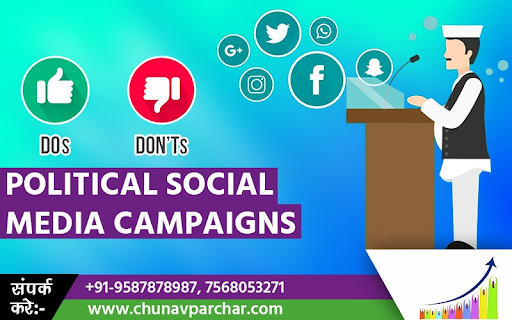Political campaigns in India have evolved significantly over the years. In today’s digital age, it has become crucial for political parties to reach out to voters through multiple channels. This is where political marketing agencies play a vital role. These agencies specialize in creating multi-channel campaigns that help candidates connect with people from diverse backgrounds and demographics.
In this article, we will explore how political marketing agencies in India are leveraging different channels to create successful campaigns and drive voter engagement.
Understanding Multi-Channel Campaigns
Multi-channel campaigning refers to using various communication channels to convey a unified message and facilitate two-way communication between political parties/candidates and voters. In simple terms, it involves reaching out to voters through multiple mediums such as television, radio, print media, social media, and door-to-door canvassing.
The goal of multi-channel campaigning is to create a cohesive message that resonates with the voters and encourages them to take action. By using different channels, political marketing agencies can target a diverse audience and maximize their reach.
Benefits of Multi-Channel Campaigning
Multi-channel campaigning offers several advantages over traditional methods of political campaigning. Some of the major benefits include:
- Increased Reach: With an ever-growing number of communication channels available, multi-channel campaigning allows political parties/candidates to reach a wider audience. This is especially important in today’s digital age where people consume information through various mediums.
- Personalized Messaging: Each channel can be used to target a specific demographic or group of voters, allowing for more personalized and targeted messaging. This makes it easier to connect with voters on an individual level and address their specific concerns.
- Better Engagement: By using multiple channels, political campaigns can encourage two-way communication with voters. This can include engaging in discussions on social media, responding to comments and messages, and hosting online events. Such engagement helps build trust and credibility with voters.
- Measurable Results: Most multi-channel campaign strategies involve the use of data analytics tools that provide real-time insights into the success of different channels. This allows for better tracking of campaign effectiveness and the ability to make adjustments as needed.
Leveraging Traditional Media
Despite the rise of digital media, traditional media still holds significant importance in Indian politics. Television and radio are two popular mediums used by political parties to reach out to a broad audience. Political marketing agencies work closely with candidates to create impactful advertisements for these platforms. These ads are designed to communicate key messages effectively and generate voter interest.
Print media is another crucial component of traditional media that is widely used in political campaigns. Newspapers and magazines are popular among the older generation, making them an essential channel for reaching out to this demographic.
Harnessing the Power of Social Media
In recent years, social media has emerged as a powerful tool for political campaigning in India. With over 400 million active social media users, it has become a preferred medium for candidates to connect with voters directly.
Indian political digital marketing agencies capitalize on the reach and engagement potential of platforms like Facebook, Twitter, Instagram, and YouTube to create targeted campaigns. These platforms allow parties/candidates to interact with voters in real-time and share their policies and views through videos, images, polls, and live sessions.
Moreover, social media also provides an opportunity for parties to gather valuable insights and feedback from voters. This data can be used to fine-tune their campaign strategies and messaging.
However, with great power comes great responsibility. The unregulated nature of social media has also made it a breeding ground for fake news, propaganda, and divisive rhetoric. False information can spread like wildfire on these platforms, leading to misinformation and manipulation of public opinion.
In response to this phenomenon, the Election Commission of India has introduced new guidelines for political advertising on social media. Parties are now required to pre-certify any content they wish to promote on these platforms. This move aims to ensure that all advertisements are legal, ethical, and do not contain hate speech or defamatory content.
It is crucial for political parties and candidates to use social media responsibly and ethically. With the potential to reach millions, they must be mindful of the impact their words and actions can have on society. In a diverse country like India, it is essential to promote unity and harmony rather than division through social media platforms.
Embracing Technology
Apart from traditional and digital media, political marketing agencies are also utilizing technology in other ways. Mobile applications have become increasingly popular among political parties as it allows them to connect with voters on a more personal level.
Apps like ‘Namo,’ launched during the 2014 Lok Sabha elections, allowed users to get real-time updates about Modi’s campaign rallies, speeches, and policies. Similarly, ‘AAP Ka CM’ was launched by the Aam Aadmi Party (AAP) during the Delhi Assembly elections, providing voters with information about candidates and their promises.
With the rise of Artificial Intelligence (AI) and chatbots, political marketing agencies are also exploring new ways to engage with voters. These technologies can be used to answer queries, provide updates, and even gather data from voters in real-time.
Door-To-Door Canvassing
While technology has undoubtedly transformed political campaigning, door-to-door canvassing remains an essential aspect of Indian politics. Political marketing agencies understand the importance of personal interaction and grassroots-level campaigning. They work closely with candidates to create effective strategies for reaching out to voters at their doorstep.
Door-to-door canvassing allows parties/candidates to understand the concerns and issues faced by voters firsthand. It also provides an opportunity to build a personal connection with potential voters and persuade them to support their candidate.
